Category: Liberal Arts
-
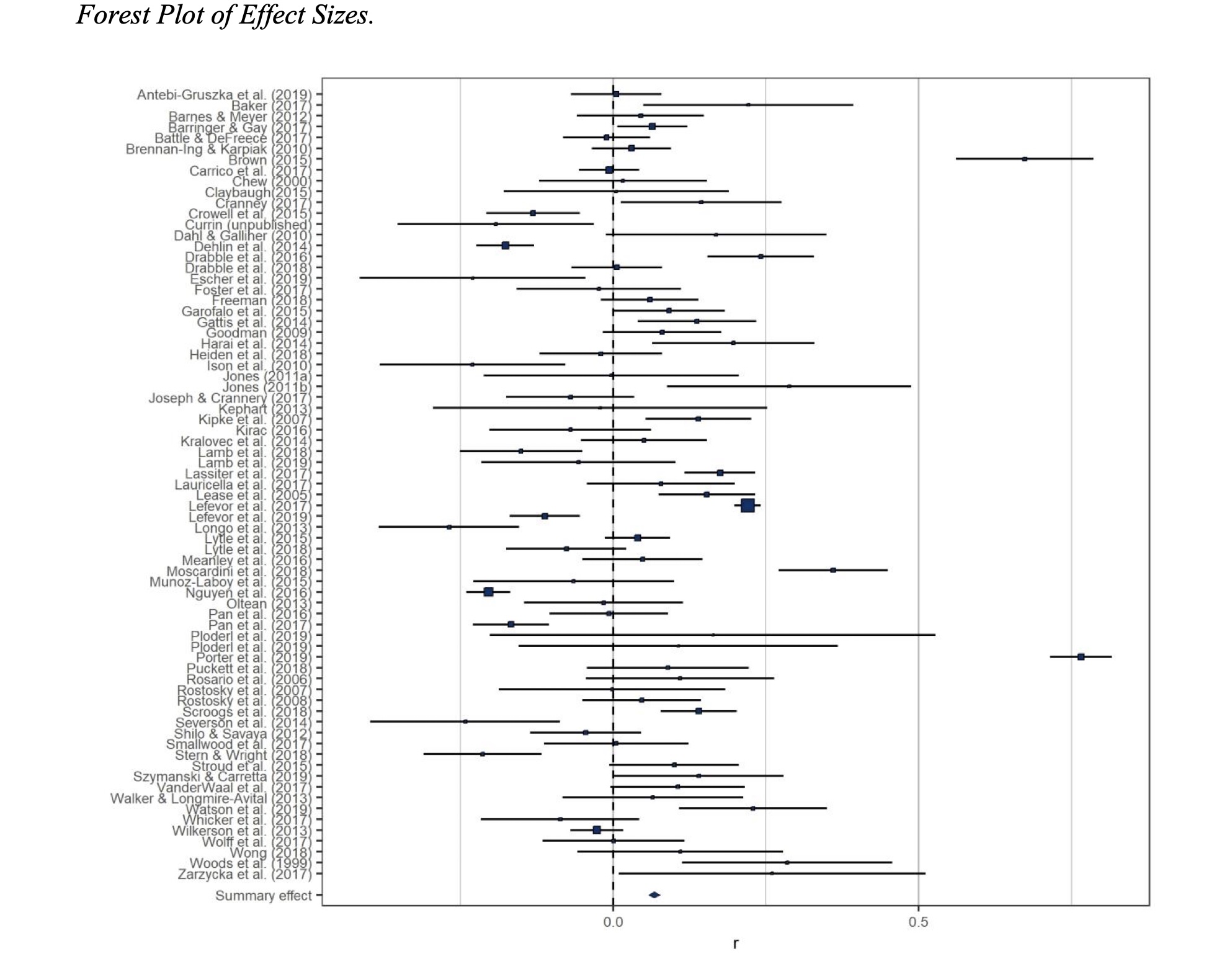
Are Religious Gay People Unhealthy?
One of the most underappreciated but informative social science studies in the US today is Lefevor et al’s* “The Relationship Between Religiousness and Health among Sexual Minorities. A Meta-Analysis” published in Psychological Bulletin. While I get the sense that sexual minority issues aren’t the most explosive issue right now (they’ve been displaced by transgender people…
-

How Many Stakes Worth of Immigrants Are There in the Church in the US?
If all of the immigrants in the Church in the US left, how many stakes would the US Church contract by? First of all, while I am in general pro-immigration, this isn’t an argument for immigration, just an interesting thought experiment. If they weren’t in the US they would be somewhere else, so their loss…
-

How Many Big Families Are in the US? Where Are They?
As we were growing our family, each parity level fundamentally represented something different to the world about who you were. It went something like this, but experiences may vary: 0 kids) Very atypical for married Latter-day Saint, the operating assumption if you’re old enough is that you have fertility problems. For gentiles there’s the possibility…
-
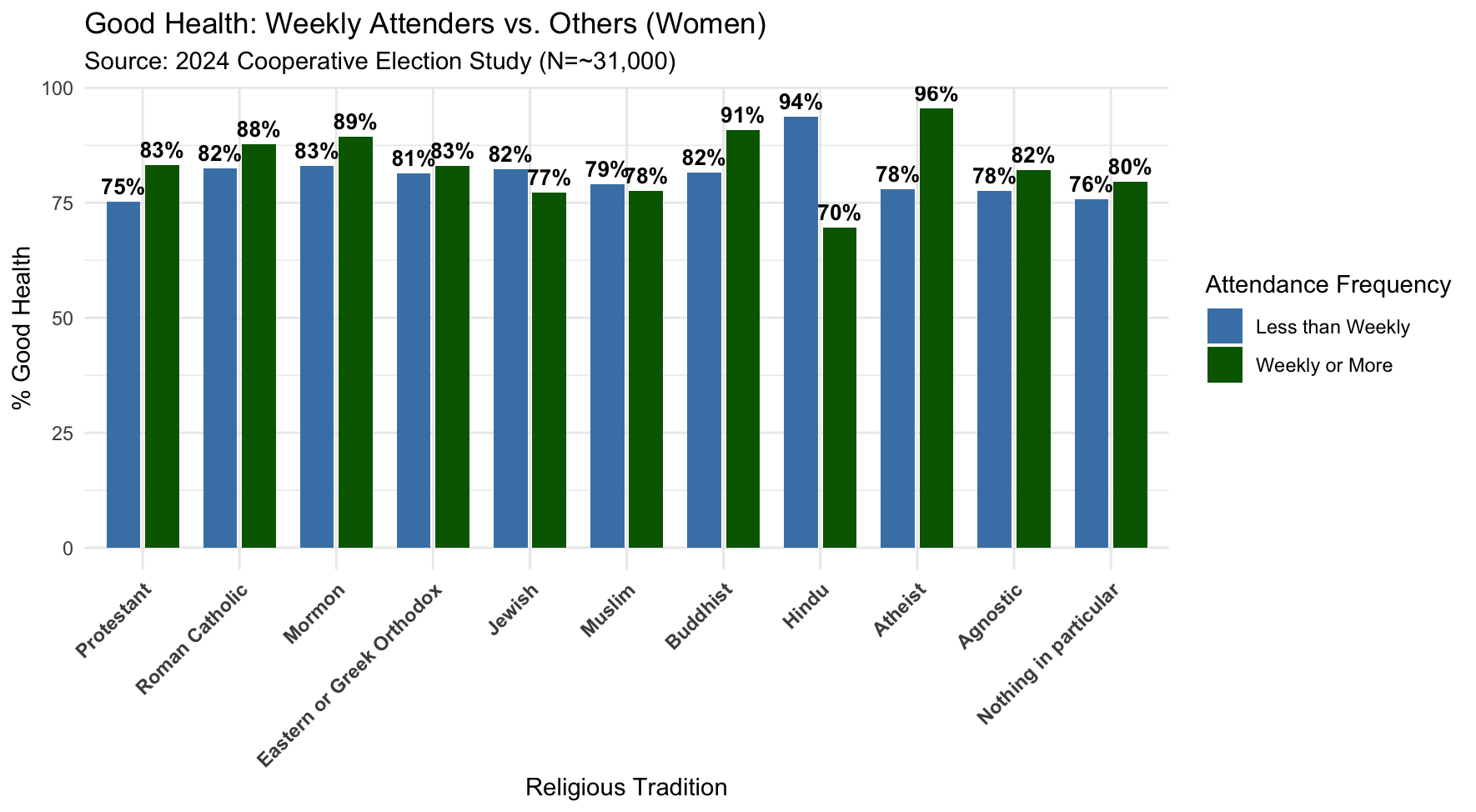
Religion and Health by Attendance
Sometimes people don’t quite understand how strong and pointed the relationship between religion and health is, so I ran some numbers using both the PRLS and CES using percent of people who self-identify as having good health.
-

If Religiosity Was Height, How Tall Would Latter-day Saints Be?
Stats 101 covers how, when comparing two different groups or people, it’s not enough to simply state what the average differences are. We see this in those interminable discussions about who is the GOAT of this or that sport. We can simply compare their average numbers of points, but the NBA now might be scoring…
-

Sociology of Religion Terms and the Restored Gospel
Sacred Canopy Coined by sociologist of religion Peter Berger, a Sacred Canopy is a religiously-driven common worldview in a community. Where the very literal protective interdiction of St. Christopher on your daily drive, the daily calls to prayer, or a testimony of the Book of Mormon, are all part of a taken-for-granted worldview that seems…
-
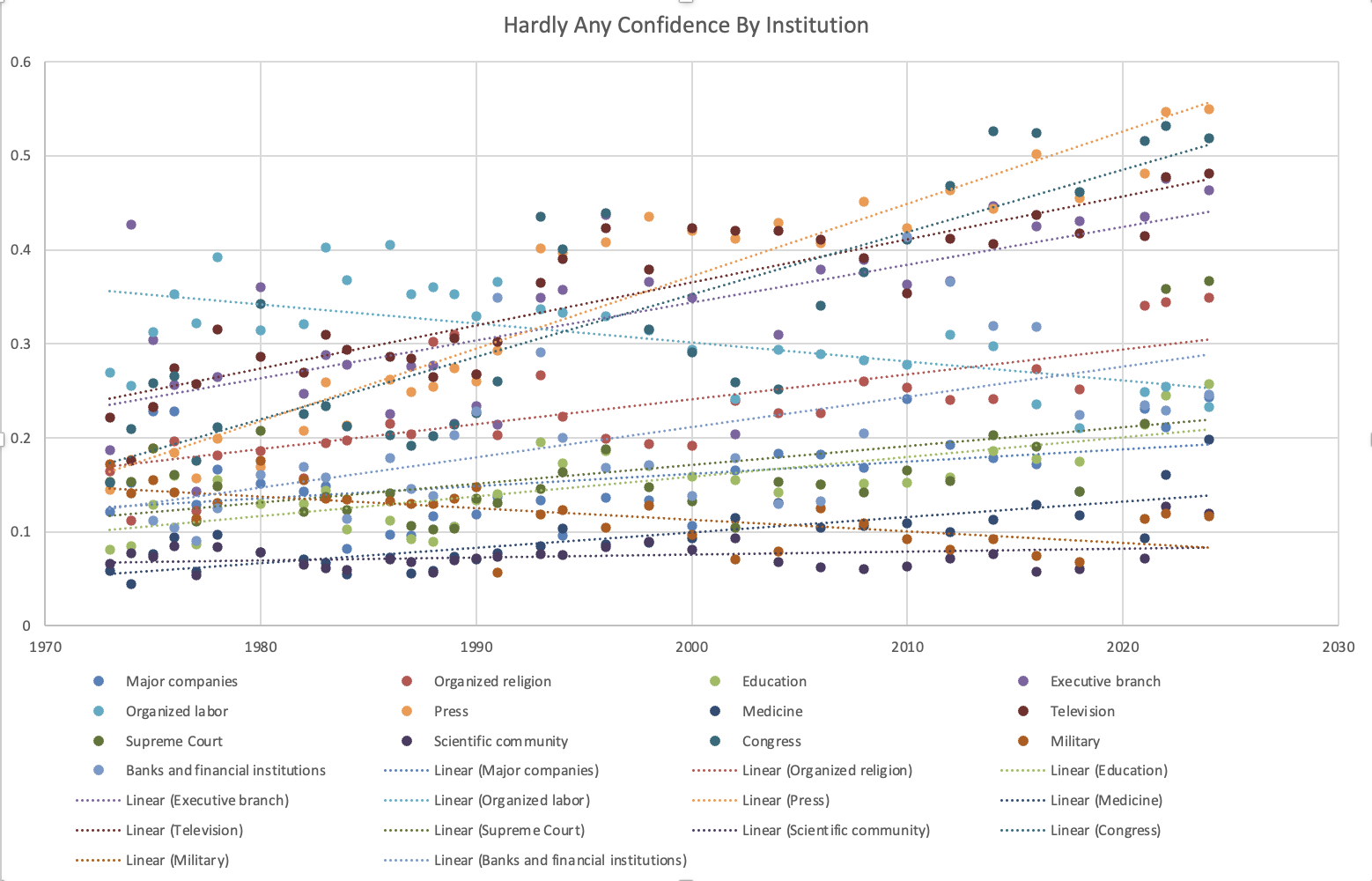
Declining Confidence in Religion and Other Institutions
I’m increasingly appreciating that one of the side-benefits of being a TS permablogger is that it provides a nice place to park my graphs and insights that don’t make it through the editors with my other work. On that note, my draft of a recent Deseret News article of mine was built around this graph.…
-
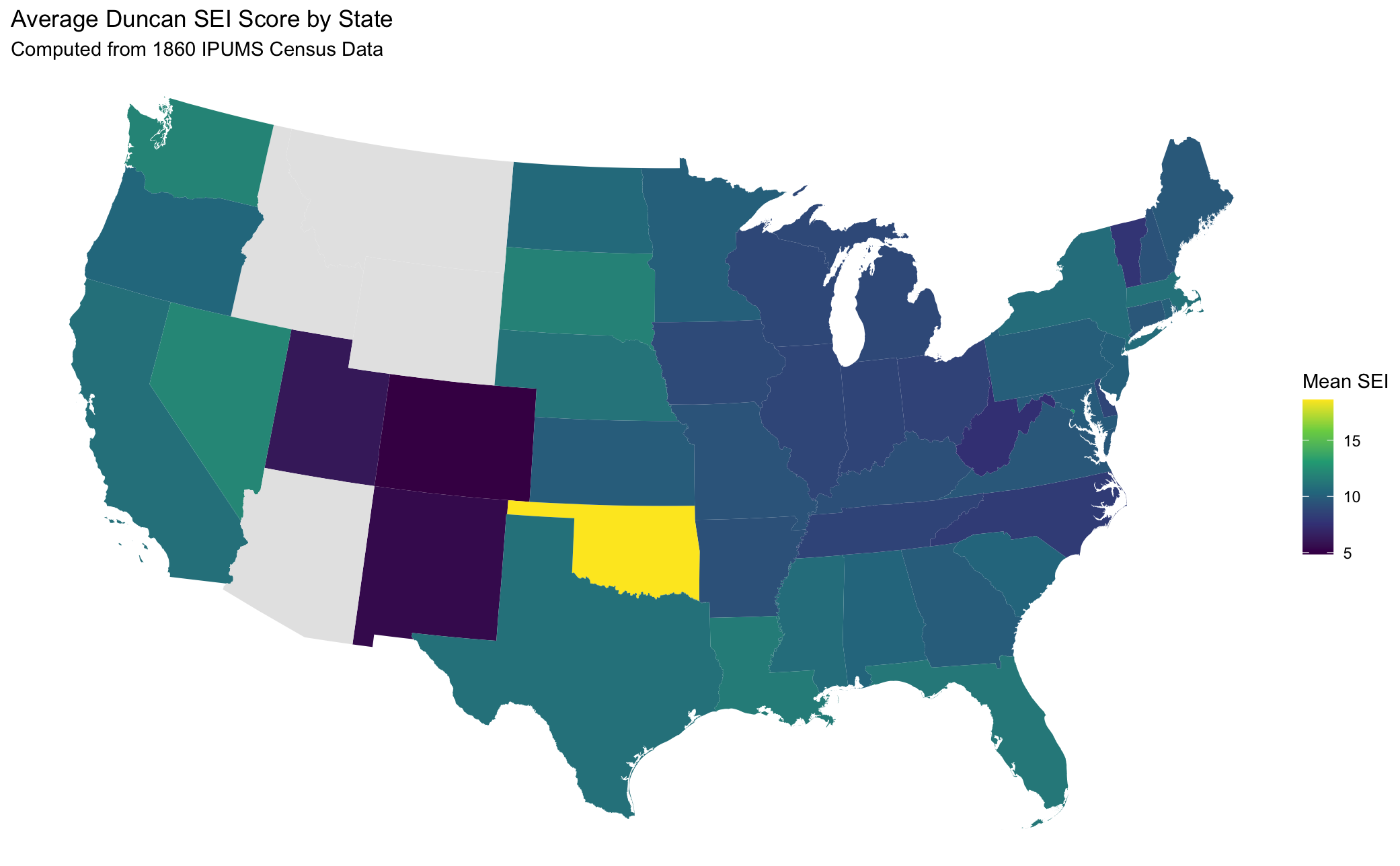
1860 Utah Had Fewer Skilled and Educated Workers than Almost Any Other State/Territory in the US
TLDR: The occasional art missionary to Europe or groundbreaking female doctor notwithstanding, a few years after the “Utah War” we were still pretty much a people of farmers and day-laborers with hardly any middle-class or educated professions. It’s hard to compare the relative economies of different states and territories in the 19th century, because the…
-
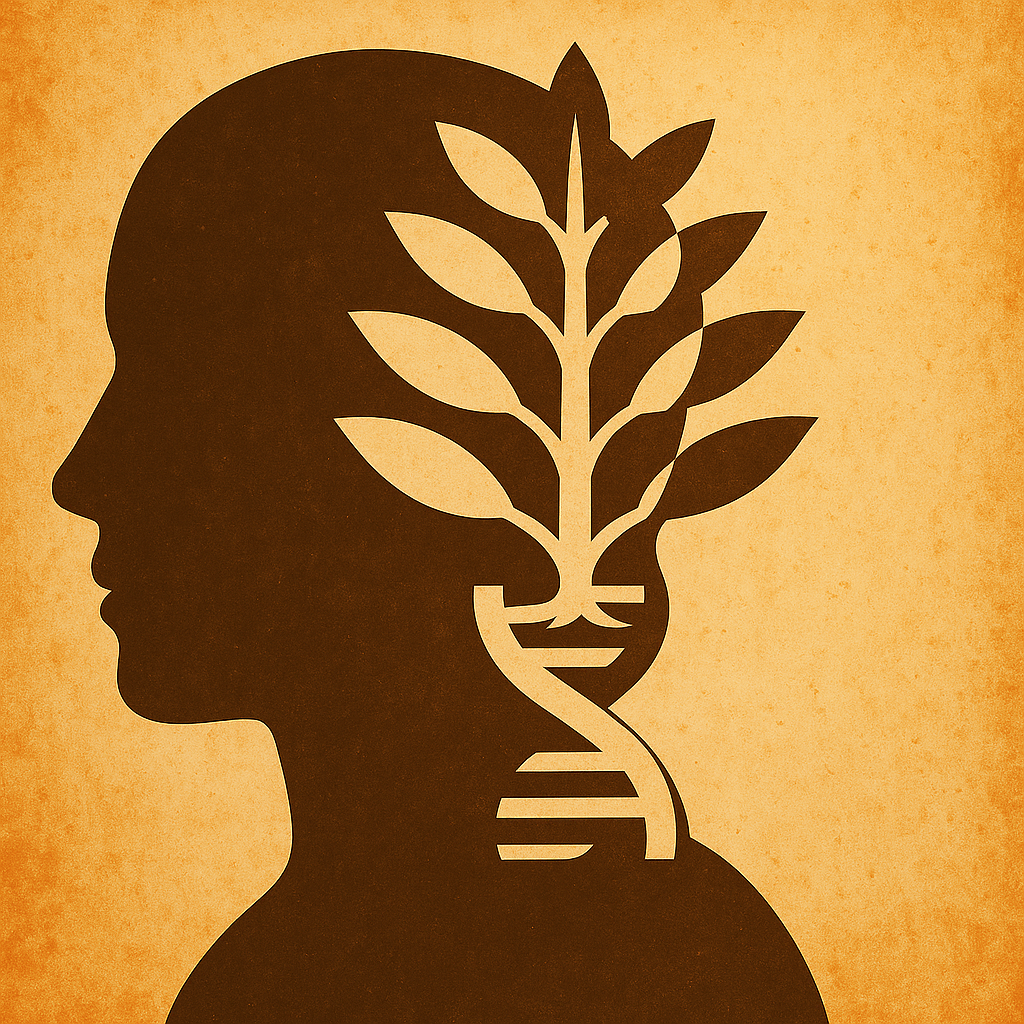
Believing Blood is Probably a Real Thing
In Latter-day Saint thought and history the idea of “believing blood” has racial connotations. The traditional “believing blood” theological model that is (rightfully, in my view) criticized by thinkers such as Armand Mauss in his book All Abraham’s Children goes something like this: certain ethnicities and nations are more amenable to the gospel message because…
-
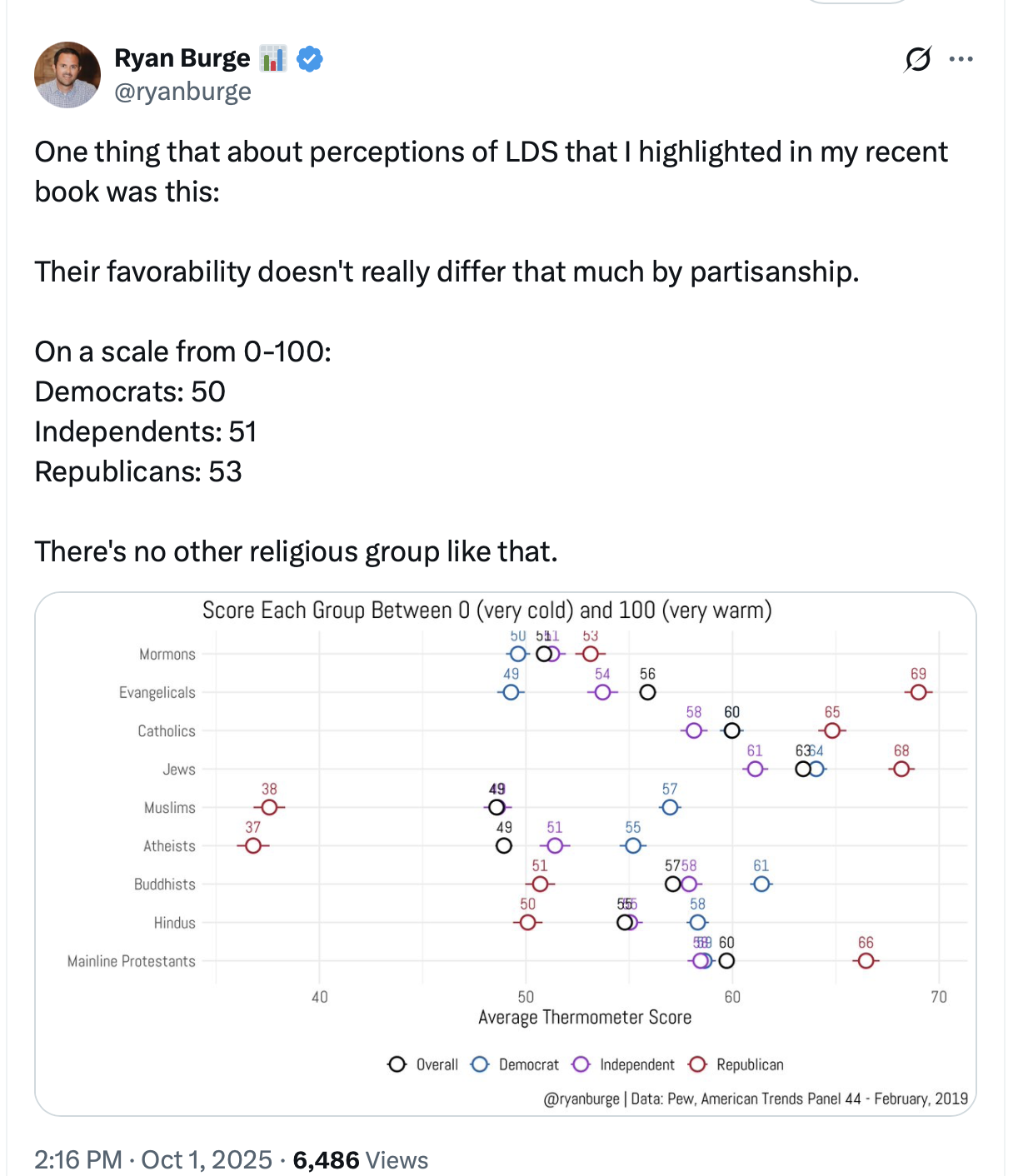
Nobody Likes Us
I ran across this post from the incomparable Ryan Burge the other day that confirmed something I’ve suspected: neither the left nor the right like us. Occasionally Latter-day Saint liberals love to point out that, despite our political alliance of convenience with the right, we’re not their favorite. They’ll hold their noses and take…
-
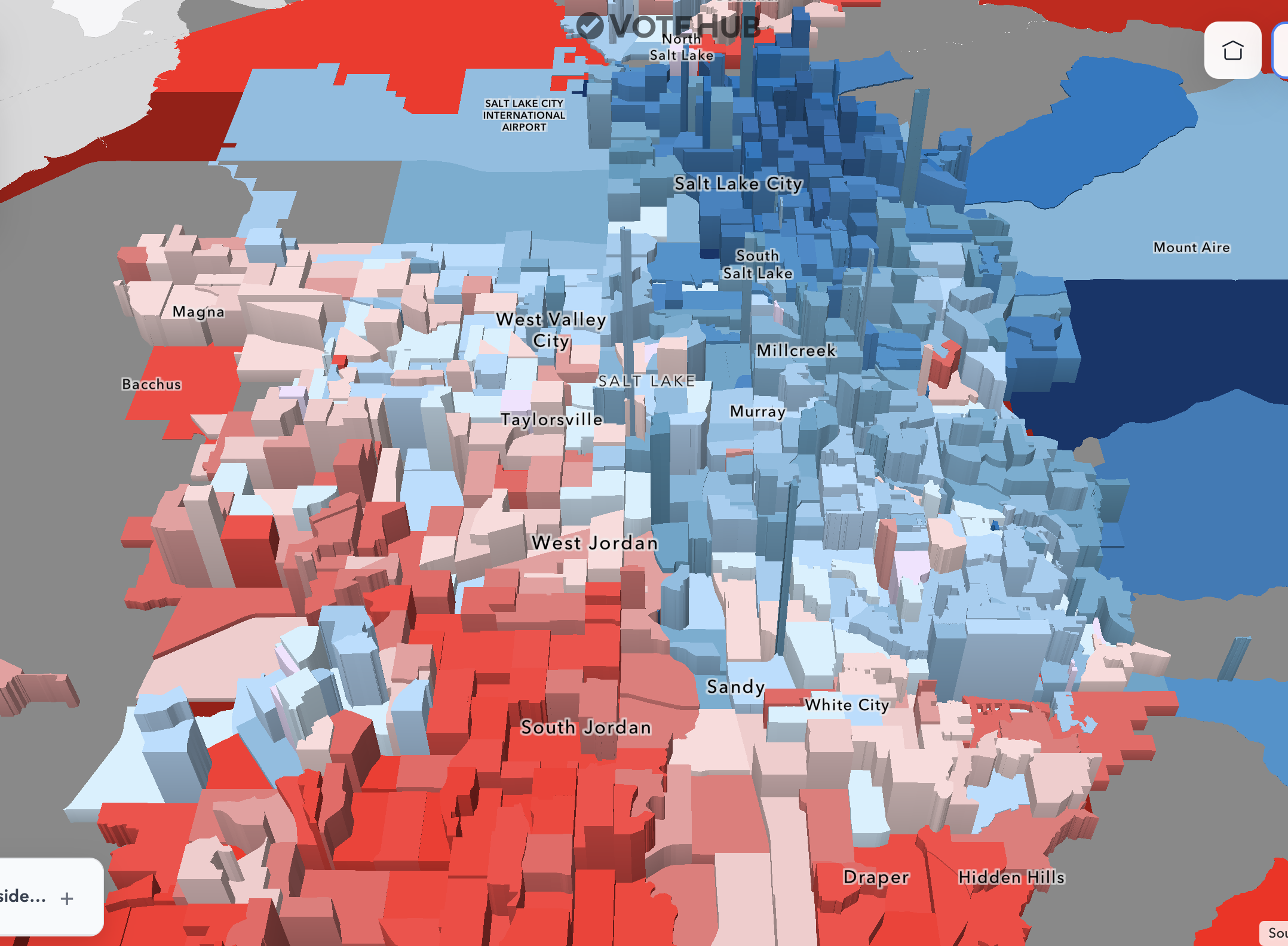
Mormon Austins: Blue Islands and Swing Precincts Across the Mormon Corridor
VoteHub just came out with what is probably the best political data visualization dashboard I’ve seen. It allows you to dive into the precinct level results, and shades it by margins and not just who won, so we can literally see the geographic gradients as we shift from more Democrat areas to more Republican areas.…
-

Bizarre Brain Conditions and What They Mean For the Gospel
When it comes to our sense of self some of the most, I won’t say problematizing, but let’s say nuancing phenomena are brain injuries and lesions that lead to bizarre neurological conditions (at least for us dualists who believe that there is a soul that is greater than the sum of our brain’s biomechanical parts). …
-
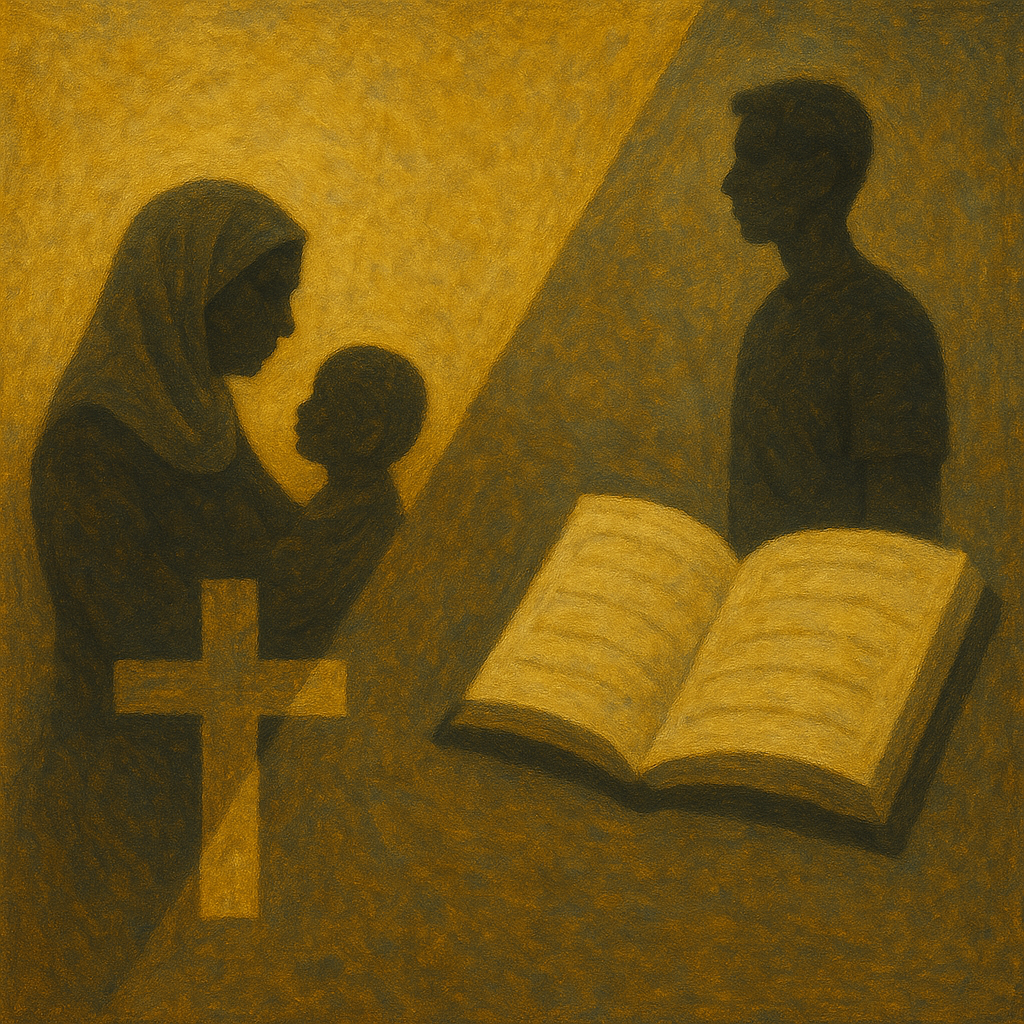
Will Immigration Save Religion in the US?
As some of you know, I occasionally write a column for the Deseret News. My recent one dropped right around the time of the Charlie Kirk shooting, so I doubt hardly anybody read it, but it actually has some interesting insights in regards to immigration and religiosity in the US. Among other things, I point…
-

Missionary Numbers are Peaking and Will Start to Decline
There’s something comfortable and fun about the kind armchair predictions about the future that are either too vague to be falsifiable or too far in the future for anybody to hold you to account. It’s a little nervy to make a concrete, falsifiable prediction in the near future, so I do so with some trepidation,…
-

Childless Church Members and the LDS Fertility Advantage
I kind of like the speculative theology that people who do not have the ability to raise children in this life, whether through death, accident, or lack of opportunity, will be able to in the next. The TLDR: Latter-day Saint women are less likely to be childless than non-Latter-day Saint women. Specifically, we’ve gone from…
-
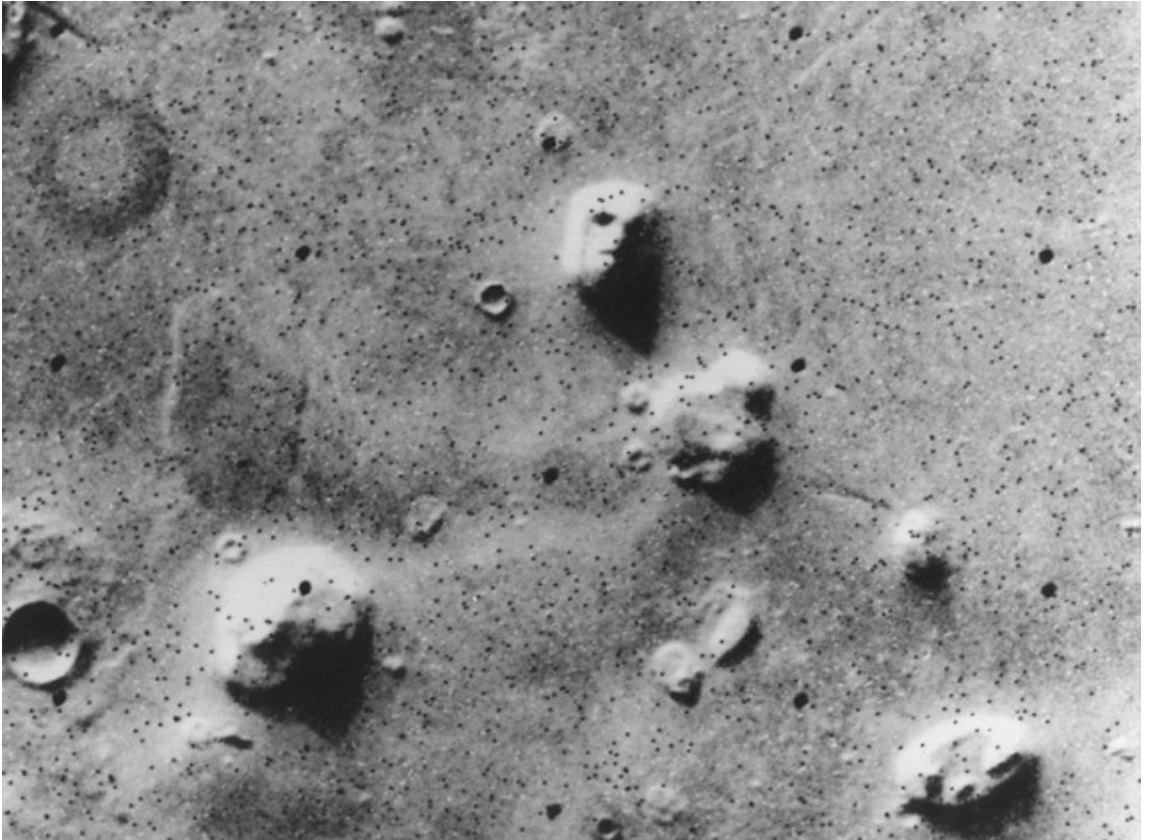
Manufacturing Mormon Types from Noise: A Statistical Reality Check on Clustering Claims in Religious Survey Data
Guest post by Josh Coates. Josh studied Computer Science at the University of California, Berkeley and is the Executive Director of the B. H. Roberts Foundation. A recent report boldly declares that the “Devout No Longer Define Mormonism. Devout Traditionalists, once two-thirds of the LDS population, are now a minority” based on the Pew Religious Landscape…
-

Are Latter-day Saint Women Happy, Healthy, and Thriving?
Originally published in SquareTwo, Vol. 18 No. 2 (Summer 2025) Note: After working on this piece I realized that Janet Erickson, Justin Dyer, and Barbara Morgan Gardner, all at BYU, did a similar piece for the the Deseret News using the PRLS to look at the happiness of LDS women here. Recently I posted a…
-
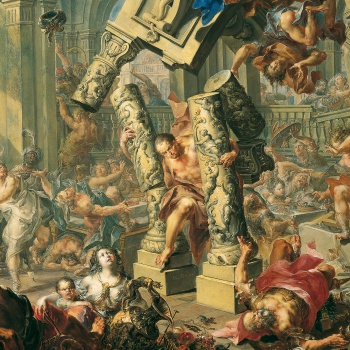
The Institute and Religion
In the television production of Stephen King’s The Institute, Avery Dixon is a ten-year-old telepath who has been snatched from his home in Salt Lake City and taken to a facility for psychically gifted children. In the book, however, Avery is specifically a “Mormon from Orem.” (Spoilers follow!)
-
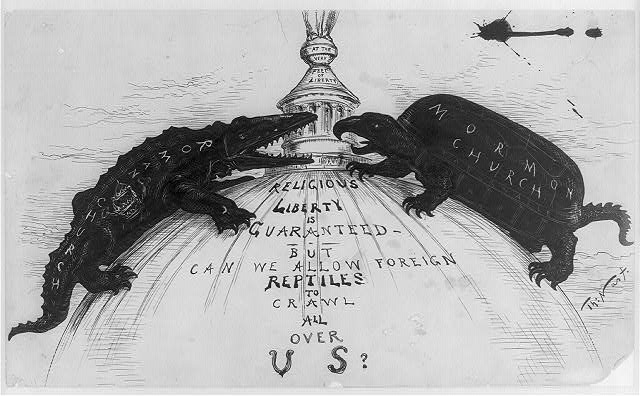
A Faith of Immigrants: How Many Migrants Were in Early Utah?
Many of us Latter-day Saints have an immigrant ancestor story. That, combined with the fact that when we entered the valley we were technically in Mexican territory, has helped foment the idea that we are a faith of immigrants. But how true is it? Was early Utah more naturally immigrant heavy than other places in…
-
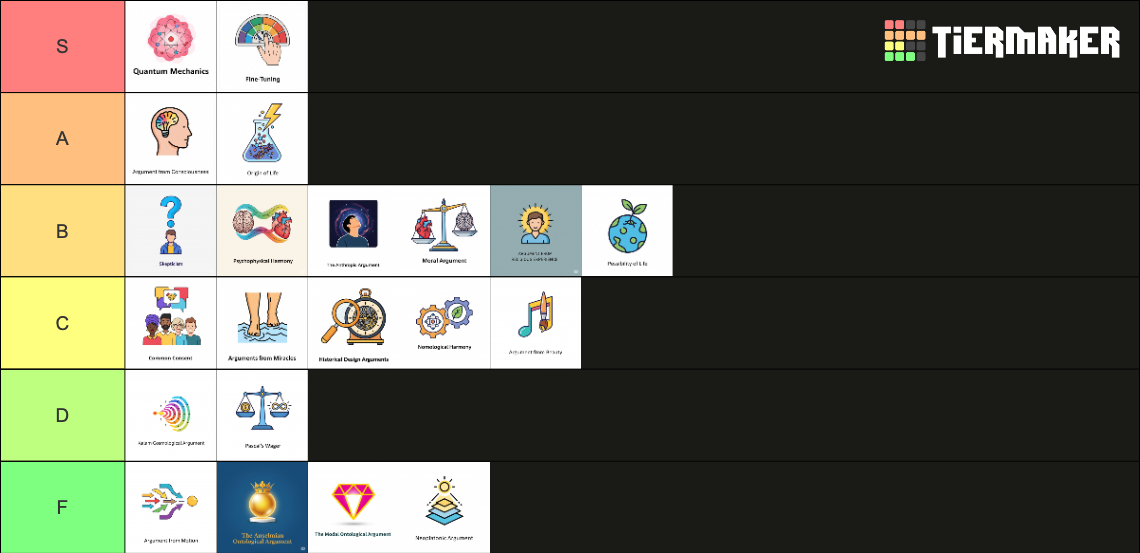
My Ranked Tier List of Arguments for the Existence of God
For the uninitiated, tier lists have become a fashionable way to rank order items, running from F tier to S tier (“super,” above A tier). Sometimes going up to S plus. I watch a lot of weight lifting YouTube videos, and it seems like every fitness influencer has done one of these for best exercises,…
-
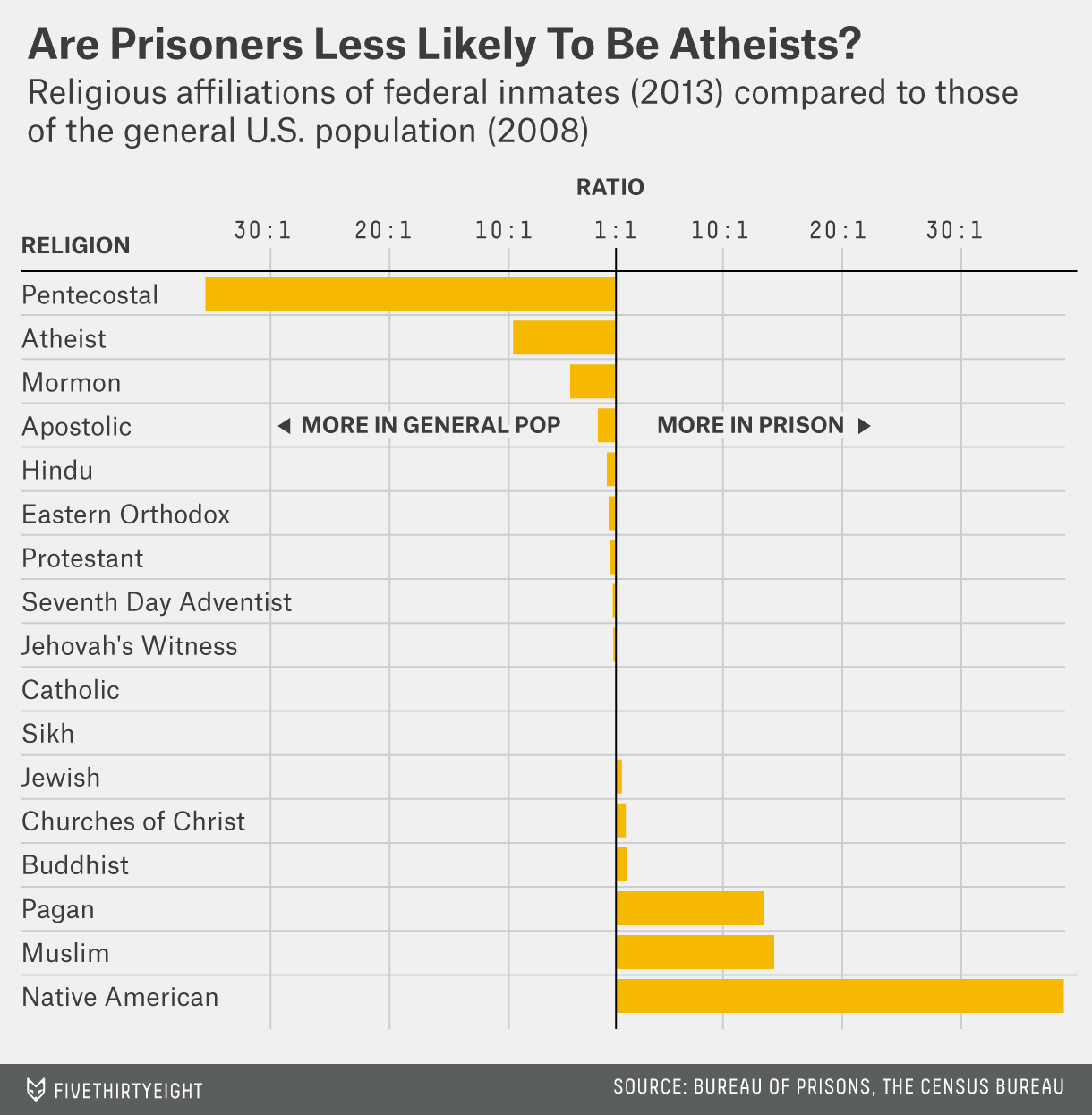
How Many Latter-day Saints are in Federal Prison?
We have surprisingly fine-grained data on the religious affiliation of federal prisoners. I’m not sure why, but it might have something to do with the fact that a large portion of religious freedom cases in the US deal with prison accommodations (e.g. can a Sikh prisoner wear a beard? A Jewish prisoner have Kosher food?…
-
The AI Pornography Tsunami Has Started: Results from the Wheatley Institute Survey on AI
I’ve been tooting my horn quite a bit about the world-rocking tsunami that is coming when people can use a combination of AI and photorealistic VR to be immersed in virtually any sexual/romantic situation you can think of (and even ones you didn’t think of, since the algorithm can make recommendations that hadn’t occurred to…
-
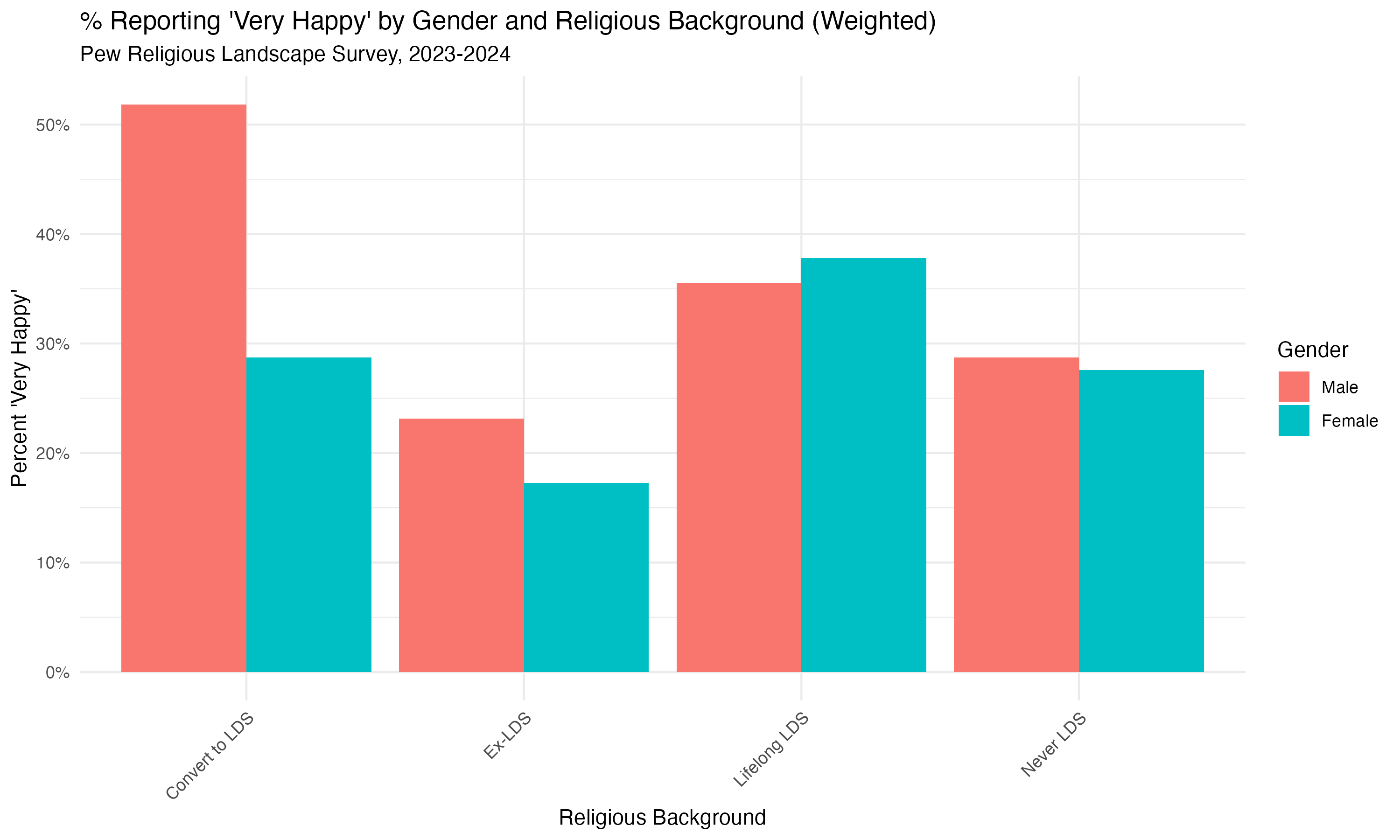
Are Latter-day Saints Happier? The Pew Religious Landscape Survey, Relationship with the Church, and Flourishing
The 2023-2024 PRLS had the rare combination of questions about 1) current religion, 2) religion in which raised, and 3) different measures of flourishing. This allows us to see whether, for example, former Latter-day Saints (at least those raised LDS who no longer identify as such) are happier than current Latter-day Saints, or current Latter-day…
-
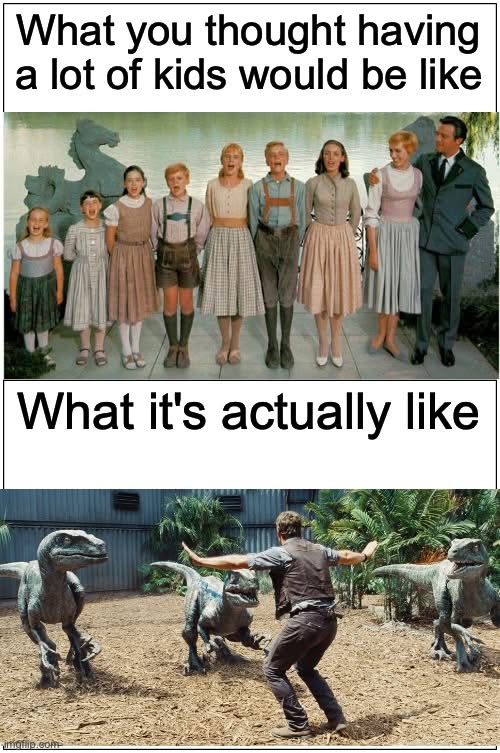
How Common are Large Latter-day Saint Families?
My favorite big family memes It’s difficult to study large families in the US because most surveys have what is called “right-censored data,” where they cap it at, say 4 and above, so we can’t look specifically at, say, eight or above families. However, I found one dataset, the Cooperative Election Study, that does actually…
-

Did People Have More Children to Work the Farm?
I am going to take advantage of permablogger privilege to address a historical demography myth/pet peeve of mine which, while seemingly orthogonal, does connect to the gospel, just give me a second to get there. There is a widespread belief that in the past children were a net asset to your wealth, and people are…
-

A Lot More People are Leaving the Church Now
I finally got around to calculating the Church leaving rates from the latest Pew Religious Landscape Survey. The PRLS is one of the few surveys that has questions about both former and current religious affiliation with a large enough sample size that it can tell us something about Latter-day Saints. So what do we find?…
-

“Moral Luck” and Time of Death
A common theme in Latter-day Saint circles, admittedly with some scriptural support (Alma 34), is the idea that what matters at the end of the day is where we are with God at the moment of our death. That if somebody lives a sanctified life but throws it all out the last week of her…
-
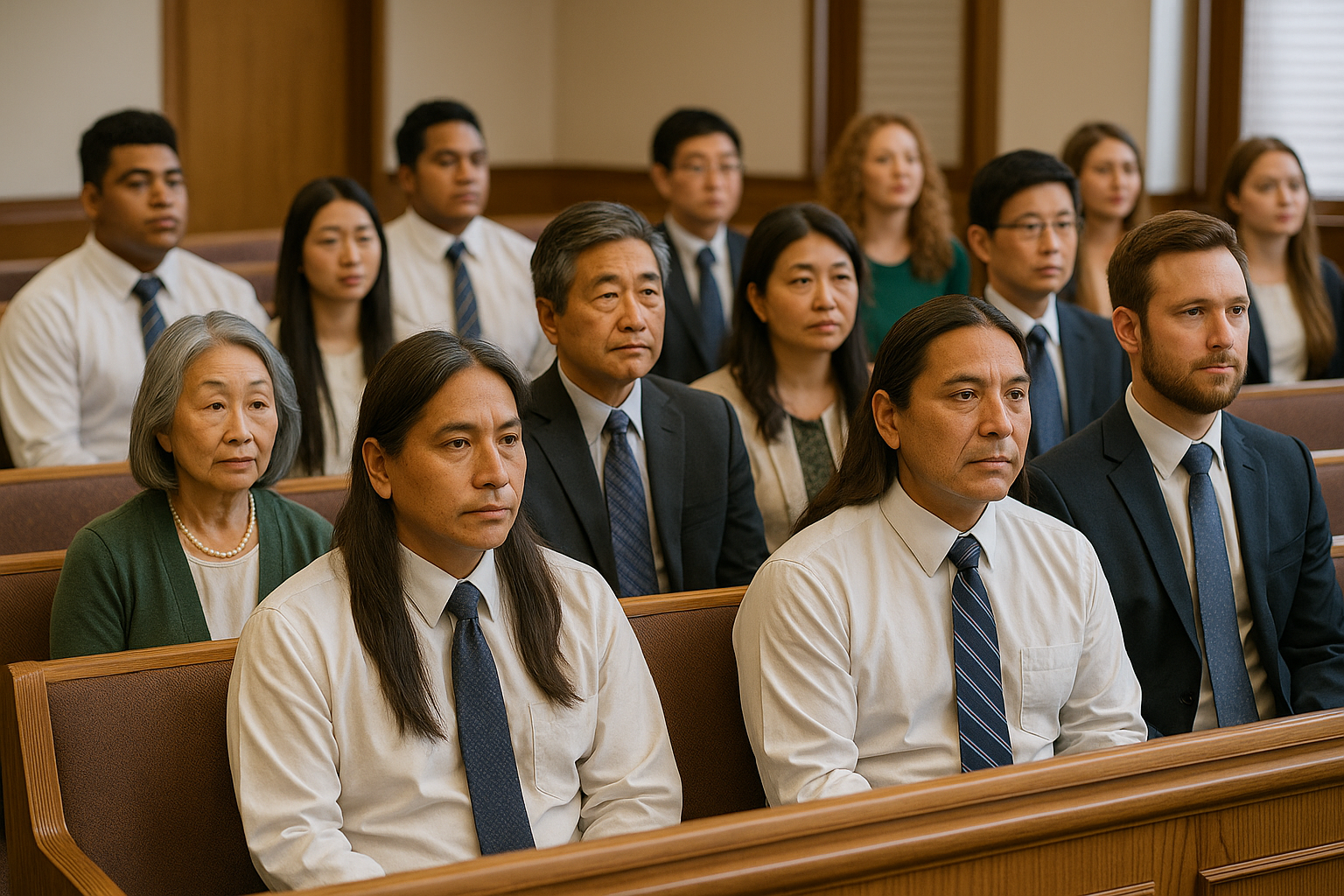
What Would an “Open Borders” American Church Look Like? Affirmative Action, Munch N Mingles, and Polyglot Patriarchs
I am for open borders (more or less, with some exceptions we needn’t go into here). I was even quoted in a conservative newspaper’s article headlined “Illegal immigrants have a friend in the Church of Jesus Christ of Latter-day Saints” based on a Deseret News article I wrote (although it didn’t exactly help my thesis…
-

Are Latter-day Saints Disproportionately Gay? Part II
Years ago I discussed the highly plausible possibility that Latter-day Saints are disproportionately gay (at least for males), because our large family sizes mean we have a higher chance of having older brothers, and older brothers, or the “fraternal birth order effect” has been shown to have a significant influence on male homosexuality. At the…
-
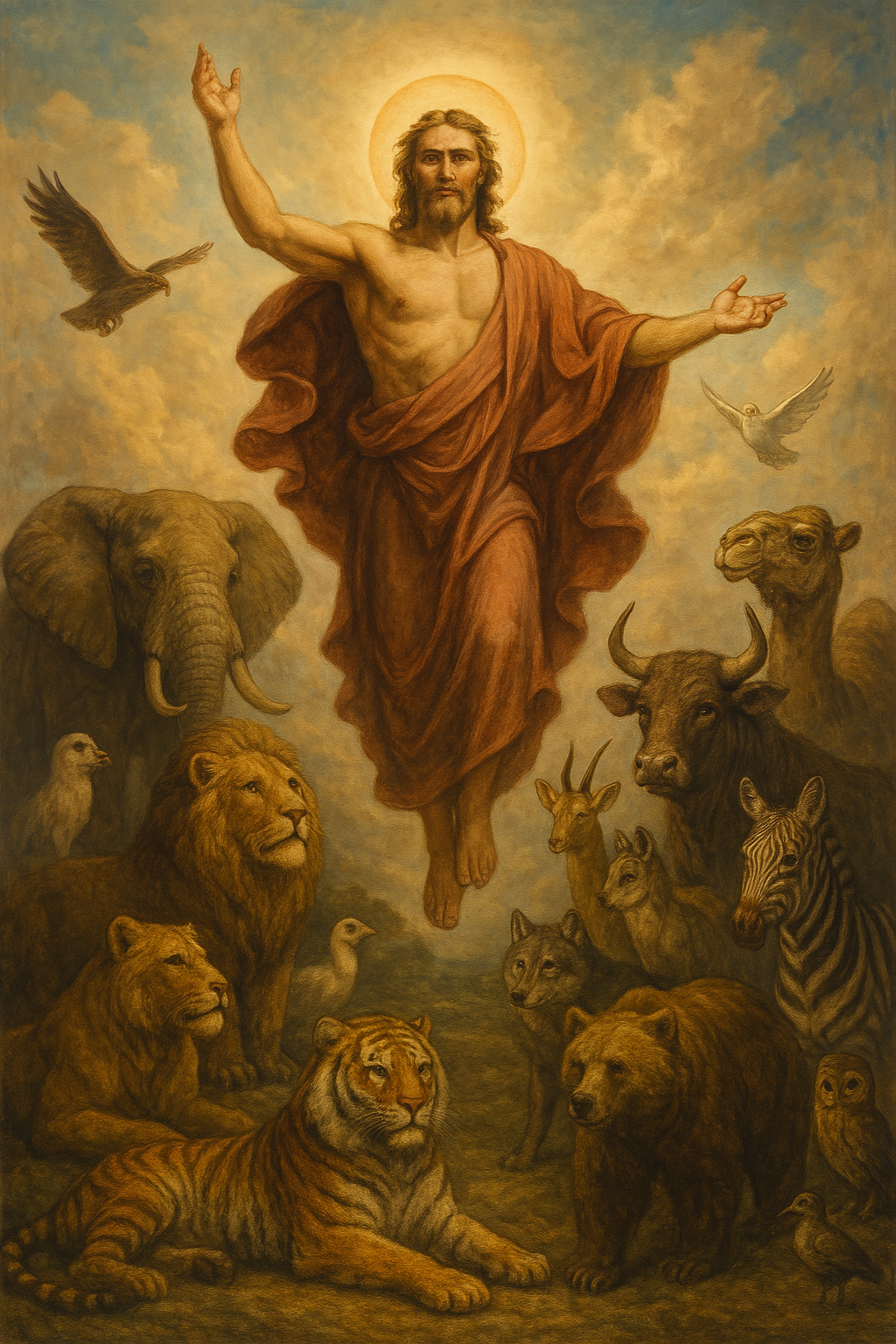
Are Humans More Important than Animals? Speciesism and the Gospel
One of the most counter-intuitive and abhorrent, yet strangely logically airtight arguments in modern-day ethics is Peter Singer’s argument for why, if we are okay with killing and experimenting with animals, we should then be okay with experimenting on mentally handicapped humans and killing babies. Of course killing and experimenting on infants and the disabled…
